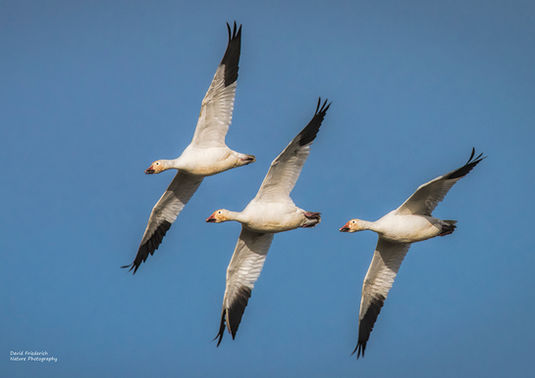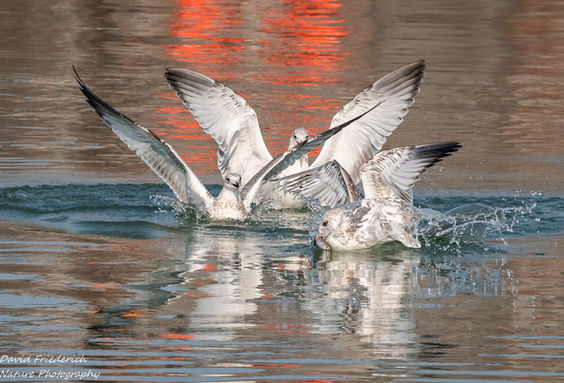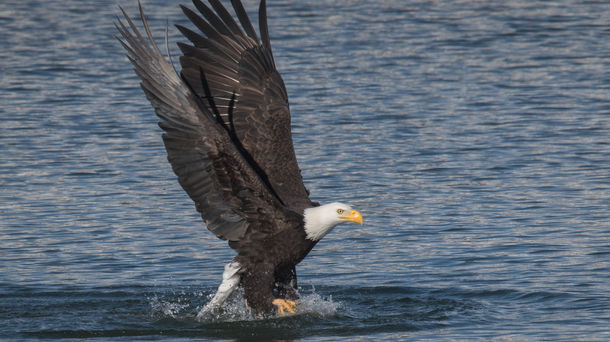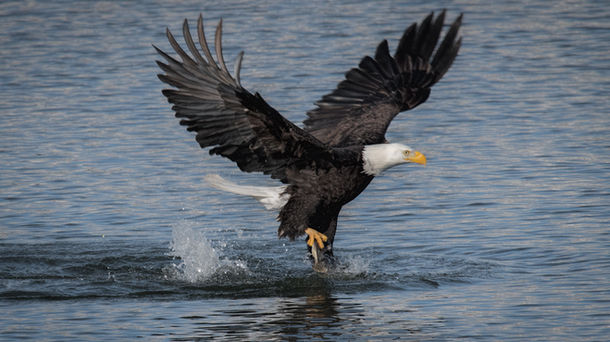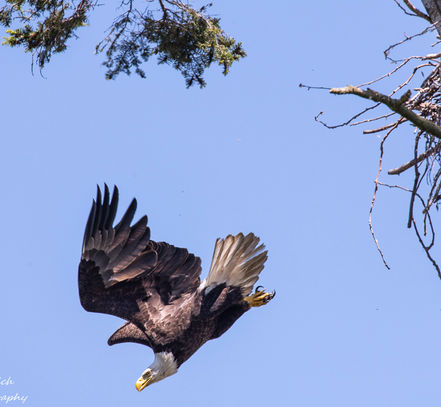NATURE PHOTOGRAPHY by DAVID FRIEDERICH

David is a Marina Wes-Del resident and photographer, specializing in sports and nature photography. Through patience and perception, remarkable moments are captured as bald eagles, migratory water fowl, shore birds, marine mammals and insects go about their day-to-day existence.
The photographs below are gathered into sets, some have David's descriptions, others speak for themselves.
For descriptions and full-screen controls, double click/tap an image to open each set.
For descriptions and full-screen controls, Click/tap an image to open each set
From the George C. Reifel Bird Sanctuary site:
The Lesser Snow Geese visiting the Sanctuary are part of the Pacific Flyway nesting population from Wrangel Island, Russia. Lesser Snow Geese generally mate for life, and the three or four young raised each year migrate with their parents. During the summer, when adult geese and the new young birds are all flightless, scientists from Canada, the United States and Russia all work together to capture some of these birds and mark them so that their migratory paths can be better understood. Visitors can help the ongoing international research projects by reporting any marked birds, as over 2,000 birds have been individually marked with coloured neck collars or tracked after the installation of radio-transmittors as part of migration and population studies.
Our Snow Geese start arriving at the Sanctuary by early October and are referred to as the "Fraser-Skagit" flock or subpopulation, as they move back and forth between the estuaries of the Fraser and Skagit Rivers. Arriving from the north, most flocks feed intensively in the Fraser estuary, but some go directly to the Skagit. The Skagit River estuary is just south of the Canada/United States border in the State of Washington, and it provides the birds with flat farmland and coastal marshes similar to those of the Fraser River estuary. From late December to February nearly all of the birds have moved to the Skagit estuary, then return to the Fraser estuary in spring, departing in April for Wrangel Island. Nesting pairs are on their nests and incubating eggs most of June, and the resulting young are ready to fly by late August.
Eulachon run in Canoe Pass has seabirds fighting for their share and chasing opportunists off the food source
A new generation of Canoe Pass eagles
Late August - 2018
Every year at this time, there is a smelt run in this part of the Fraser River, right in front of us at Canoe Pass. It lasts just a short time, only a few days, but it makes for quite a spectacle as ring billed gulls in particular, and other gull species, gather to feed on the little fish on falling tides. I have been photographing this phenomenon for years now, but thought I would share a few pics from the last few days with explanations. Smelt are very small fish, smaller than herring, low on the food chain, but hugely important for predator species like salmon, seals, gulls, and man. Some of you may know them by the native term oolichan.
Harbour seals can often be seen fishing in Canoe Pass near the bridge. These were shot from our top deck.
Every year, a pair of bald eagles nests in a tall tree within sight of Marina Wes-Del homes.
Here are some images from 2018
A new generation of Canoe Pass eagles
Mid-July, 2018
I want to update you with photos on what is happening at our nest. Our young eagles, all three of them, are thriving and close to fledging. There won't be many more photo opportunities before they are gone, and the parents gone, too.
There are only a few days left to see this family. Soon they will drift away. One may leave early, then two, maybe one will be left alone. The parents will vacate the area, and the cycle will begin again in October, when the parents return and begin renovating the nest for their next family. You have witnessed something very unique. In all my eagle watching, and eagle photography, spanning many years, I have not seen three baby eagles make it to the fledging stage... a tribute to the awesome parenting skills of our Canoe Pass eagles.
